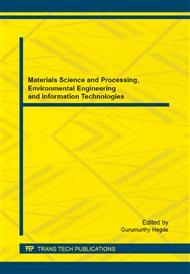p.654
p.661
p.668
p.674
p.679
p.685
p.691
p.698
p.706
Regional Economic and Social Harmonious Degree Evaluation Model Using Intuitionistic Fuzzy Set
Abstract:
The harmonious degree is an essential factor evaluating the coordinative development of economy and society. It’s a typical multi-criteria evaluation problem to access the degree. For the vagueness and uncertainty of assessing information, an evaluation model using intuitionistic fuzzy set is proposed in this paper to assess regional economic and social harmonious degree objectively. In the model, the initial weight is set by intuitionistic fuzzy entropy, the correction weight is set according to the common people’s preference of subjective emotion, Thus the combination weight is get by merging the above two weights. And the assessing score is calculated by weighted aggregation operator integrating the assessing information. Finally, an example assessing the harmonious degree of five cities in Pearl River Delta of China shows the effectiveness of the model.
Info:
Periodical:
Pages:
679-684
DOI:
Citation:
Online since:
October 2014
Authors:
Keywords:
Price:
Сopyright:
© 2014 Trans Tech Publications Ltd. All Rights Reserved
Share:
Citation:


